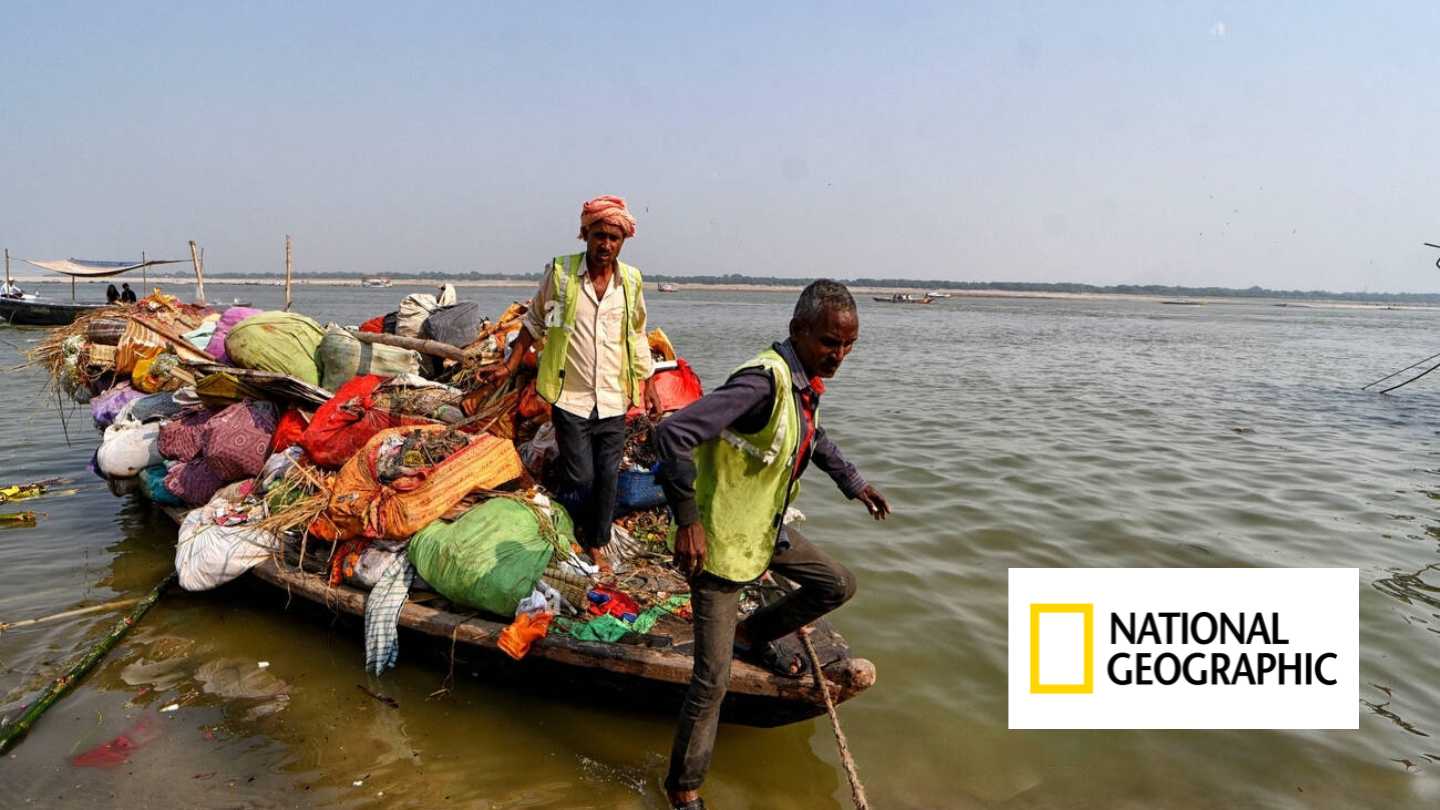In a groundbreaking effort to address one of the most pressing environmental challenges of our time, Earth5R recently participated in a National Geographic roundtable focused on tackling plastic pollution in the iconic Ganges River. This pivotal discussion brought together experts, stakeholders, and thought leaders from various fields to explore innovative solutions and underscore the urgent need for collective action.
The Ganges River, often revered as a symbol of purity and spirituality, is now facing a crisis of contamination due to the rampant proliferation of plastic waste. As one of the most heavily polluted rivers in the world, the Ganges is plagued by litter, debris, and plastic pollution, posing serious threats to aquatic life, public health, and ecosystem integrity.
Recognizing the gravity of this issue, Earth5R joined forces with National Geographic and other key partners to initiate a collaborative dialogue aimed at identifying sustainable strategies for mitigating plastic pollution in the Ganges River basin. Through this roundtable discussion, participants delved into the root causes of plastic pollution, assessed its environmental and social impacts, and exchanged insights on effective mitigation measures.
At the heart of the discussion was the recognition that addressing plastic pollution in the Ganges River requires a multifaceted approach that integrates scientific research, policy interventions, community engagement, and technological innovation. Participants emphasized the importance of leveraging data-driven solutions to inform decision-making and drive targeted interventions that yield measurable impact.
One of the key takeaways from the roundtable was the critical role of collaboration in tackling plastic pollution. Recognizing that no single entity or sector can address this complex challenge alone, participants underscored the need for cross-sectoral partnerships and coordinated efforts involving governments, businesses, civil society organizations, and local communities. By fostering collaboration and knowledge-sharing, stakeholders can pool their resources, expertise, and networks to amplify the effectiveness of their collective actions.
Furthermore, the roundtable discussion highlighted the importance of raising public awareness and fostering behavioral change to reduce plastic consumption and promote responsible waste management practices. Education and outreach initiatives play a crucial role in empowering individuals and communities to adopt more sustainable lifestyles and advocate for environmental stewardship.
As a leading advocate for environmental sustainability, Earth5R remains committed to driving positive change and catalyzing action on plastic pollution in the Ganges River and beyond. Through its innovative projects, educational programs, and community engagement initiatives, Earth5R is working tirelessly to raise awareness, mobilize stakeholders, and implement practical solutions that address the root causes of plastic pollution and promote the health and resilience of our planet’s ecosystems.
In conclusion, the National Geographic roundtable on plastic pollution in the Ganges River served as a platform for dialogue, collaboration, and action, bringing together diverse stakeholders to confront one of the most pressing environmental challenges of our time. By harnessing the power of collective action, innovation, and public engagement, we can work towards a future where our rivers run clean and free from the scourge of plastic pollution.



